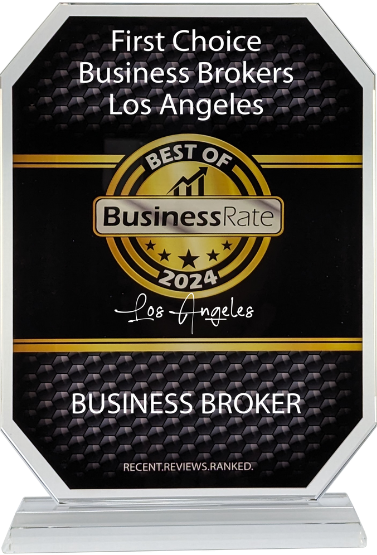Understanding the Concept of Buying a Business with No Money
Exploring Creative Financing Options
When it comes to buying a business with no money, exploring creative financing options is essential. One strategy is to leverage seller financing, where the seller provides a loan to the buyer. This can be a win-win situation as it allows the buyer to acquire the business without upfront capital, while the seller receives regular payments with interest. Another option is negotiating equity deals, where the buyer offers a stake in the business in exchange for ownership. This can be attractive to investors who are looking for long-term returns. Additionally, utilizing business grants and loans can provide the necessary funds to purchase a business.
Leveraging Seller Financing
Seller financing is a creative option for buying a business with no money upfront. Instead of relying on traditional lenders, you can negotiate with the seller to finance a portion or all of the purchase price. This arrangement allows you to make payments directly to the seller over an agreed-upon period of time. Seller financing provides several benefits, including flexibility in terms, potentially lower interest rates, and the ability to secure a deal when traditional financing is not available.
Negotiating Equity Deals
Negotiating equity deals is a crucial step in buying a business with no money. It involves reaching an agreement with the current business owner to acquire a percentage of the company's ownership in exchange for your expertise, skills, or future contributions. This type of arrangement allows you to leverage your abilities and potential to secure a stake in the business without having to provide upfront capital.
When negotiating equity deals, it's important to consider the following:
- Valuation: Determine the value of the business and the percentage of equity you are willing to acquire.
- Vesting Schedule: Establish a vesting schedule that outlines the timeline for earning your equity stake based on certain milestones or performance targets.
- Exit Strategy: Discuss and agree upon an exit strategy that outlines how and when you can sell your equity stake in the future.
Remember, negotiating equity deals requires effective communication, negotiation skills, and a clear understanding of the business's potential for growth and profitability.
Utilizing Business Grants and Loans
When it comes to buying a business with no money, one option to consider is utilizing business grants and loans. These financial resources can provide the necessary funding to acquire a business without relying on personal capital. Business grants are a form of financial assistance provided by government agencies, organizations, or foundations to support specific industries or initiatives. They often have unique eligibility criteria and can be a great opportunity for entrepreneurs. On the other hand, business loans are funds borrowed from financial institutions that need to be repaid over time with interest. It's important to carefully evaluate the terms and conditions of the loan to ensure it aligns with your business goals and financial capabilities.
Building Your Network and Relationships
Networking with Business Brokers and Investors
Building a strong network is crucial for aspiring entrepreneurs who want to succeed in the business world. By connecting with business brokers and investors, you can gain valuable insights, access to potential business opportunities, and financial support. Networking allows you to establish relationships with key players in the industry, learn from their experiences, and leverage their expertise. It also provides a platform for collaboration and partnership, opening doors to new ventures and growth opportunities.
Developing Relationships with Potential Sellers
Developing relationships with potential sellers is a crucial step in buying a business with no money. Building trust and rapport with sellers can open doors to unique opportunities and favorable terms. Here are some strategies to consider:
- Networking with business brokers and investors who have access to a wide range of businesses for sale.
- Collaborating with other entrepreneurs who may have connections to potential sellers.
- Attending industry events and conferences to meet business owners who are looking to sell.
By actively engaging with these individuals and organizations, you can increase your chances of finding a business that aligns with your goals and negotiating favorable terms.
Collaborating with Other Entrepreneurs
Collaborating with other entrepreneurs can be a game-changer in your journey to buy a business with no money. By joining forces with like-minded individuals, you can pool resources, knowledge, and expertise to increase your chances of success.
Benefits of collaborating with other entrepreneurs:
- Access to a wider network of potential business opportunities
- Sharing of costs and expenses
- Learning from each other's experiences and mistakes
- Leveraging each other's strengths and skills
Tips for effective collaboration:
- Clearly define roles and responsibilities to avoid conflicts and confusion.
- Establish open and transparent communication channels.
- Set clear goals and objectives for the collaboration.
- Regularly evaluate and reassess the progress and effectiveness of the collaboration.
Remember, collaboration is not just about finding someone to share the workload. It's about finding the right partners who complement your skills and can help you achieve your goals faster and more efficiently.
Attending Industry Events and Conferences
Attending industry events and conferences is a valuable opportunity to network with like-minded professionals, gain industry insights, and explore potential business opportunities. These events bring together experts, thought leaders, and entrepreneurs from various sectors, creating a conducive environment for learning and collaboration. By attending these events, you can expand your network, build relationships with potential sellers, and stay updated on the latest trends and developments in your target industry.
Identifying Profitable Business Opportunities
Researching Industries and Market Trends
When buying a business with no money, it is crucial to thoroughly research industries and market trends. This will help you identify profitable opportunities and make informed decisions. Understanding the current market demand and the potential for growth in a particular industry can greatly increase your chances of success. Additionally, analyzing financial statements and performance metrics can provide valuable insights into the financial health of a business.
Analyzing Financial Statements and Performance Metrics
Analyzing financial statements and performance metrics is a crucial step in identifying profitable business opportunities. It provides valuable insights into the financial health and performance of a business. By examining key financial indicators such as revenue, expenses, profit margins, and cash flow, you can assess the viability and potential profitability of a business. Additionally, analyzing performance metrics such as customer acquisition cost, customer retention rate, and return on investment can help you understand the effectiveness of the business's operations and marketing strategies.
Identifying Distressed Businesses
Identifying distressed businesses is a crucial step in the process of buying a business with no money. It involves conducting a thorough analysis of the company's financials, operations, and overall performance. By identifying businesses that are struggling or facing financial difficulties, you can potentially find opportunities to acquire them at a lower cost. Here are some key steps to consider when identifying distressed businesses:
Evaluating Growth Potential
Evaluating growth potential is a crucial step in the process of buying a business with no money. This involves analyzing market demand, assessing competitors, evaluating scalability, reviewing the strength of the management team, and examining financial projections. By thoroughly evaluating these factors, you can determine the potential for future growth and profitability of the business.
Creating a Compelling Business Proposal
Crafting a Persuasive Executive Summary
Crafting an executive summary is a crucial step in presenting your business proposal. It serves as a concise overview of your plan, highlighting the key points and enticing the reader to delve deeper. An executive summary should capture the essence of your business idea and showcase its potential for success. It should be clear, compelling, and persuasive, leaving a lasting impression on the reader.
Presenting a Solid Business Plan
A solid business plan is crucial for attracting investors and securing financing. It serves as a roadmap for your business and demonstrates your understanding of the market and industry. When presenting your business plan, it's important to highlight the unique selling propositions that set your business apart from competitors. Additionally, emphasize the profitability and return on investment potential of your venture. This will instill confidence in potential investors and lenders.
Highlighting Unique Selling Propositions
When highlighting your unique selling propositions, it is important to clearly communicate what sets your business apart from competitors. A unique selling proposition is a statement that embodies the differentiation of your products and brand. It should clearly convey the value and benefits that customers can expect. Here are some key points to consider when highlighting your unique selling propositions:
- Clearly define your USP and how it addresses customer needs
- Emphasize the unique features or qualities of your products
- Highlight any competitive advantages or benefits
- Provide evidence or testimonials to support your claims
Remember, your unique selling proposition should be memorable and compelling, giving customers a reason to choose your business over others.
Demonstrating Profitability and Return on Investment
When demonstrating the profitability and return on investment of a business, it is important to provide clear and compelling evidence of its financial performance. One effective way to showcase this information is through the use of a financial statement. A financial statement provides a comprehensive overview of a business's financial health, including its revenue, expenses, and profit margins.
In addition to the financial statement, it is also beneficial to highlight key performance metrics that demonstrate the business's profitability. These metrics may include gross profit margin, net profit margin, return on investment (ROI), and earnings before interest, taxes, depreciation, and amortization (EBITDA). By presenting these metrics, potential investors or buyers can gain a better understanding of the business's financial performance and its potential for generating returns.
To further emphasize the profitability and return on investment, it is important to provide examples of successful projects or initiatives that have yielded positive financial results. This could include case studies or success stories that showcase how the business has achieved profitability and generated a return on investment for its stakeholders.
Lastly, it is crucial to communicate the future growth potential of the business. This can be done by outlining a clear growth strategy that highlights the opportunities for expansion and increased profitability. By demonstrating a well-defined plan for future growth, potential investors or buyers will be more confident in the business's ability to continue generating returns.
Negotiating and Structuring the Deal
Conducting Due Diligence
Conducting due diligence is a crucial step in the process of buying a business. It involves reviewing various documents and gathering information to assess the financial health and potential risks of the business. During due diligence, you will review important documents such as financial statements, bank statements, tax returns, and lease information. This thorough examination allows you to make informed decisions and identify any red flags or areas of concern. It is essential to pay attention to details and seek professional advice when necessary.
Determining the Valuation of the Business
Determining the valuation of a business is a crucial step in the acquisition process. It involves assessing the financial worth of the business based on various factors such as its assets, liabilities, cash flow, and market conditions. Valuation is important as it helps both the buyer and the seller in negotiating a fair purchase price. There are several methods used to determine the valuation of a business, including the income approach, market approach, and asset-based approach. Each method has its own advantages and limitations, and it's important to consider multiple approaches to get a comprehensive understanding of the business's value.
Negotiating Purchase Price and Terms
Once you have conducted due diligence and determined the valuation of the business, it is time to negotiate the purchase price and terms. This is a critical step in the acquisition process as it will determine the financial aspects of the deal. Here are some key considerations when negotiating the purchase price and terms:
Structuring the Acquisition
Structuring the acquisition is a critical step in the process of buying a business with no money. It involves determining the legal and financial framework for the transaction. Negotiating purchase price and terms is a key aspect of structuring the deal. It is important to carefully consider the valuation of the business and ensure that it aligns with the financial resources available. Additionally, the acquisition should be structured in a way that minimizes risk and maximizes potential returns.
To effectively structure the acquisition, conducting due diligence is essential. This involves thoroughly researching and analyzing the target business's financial statements, contracts, and legal obligations. It is crucial to identify any potential risks or liabilities that may impact the success of the acquisition.
Once the due diligence is complete, the next step is to determine the valuation of the business. This involves assessing the financial performance, assets, and market value of the business. A Markdown table can be used to present the quantitative data in a structured and concise manner.
After determining the valuation, negotiating the purchase price and terms is crucial. This involves discussing and finalizing the price, payment terms, and any contingencies or conditions. A Markdown list can be used to outline the key negotiation points and steps involved in structuring the acquisition.
It is important to seek professional advice and guidance during the structuring process. Consulting with legal and financial experts can help ensure that the acquisition is structured in a legally compliant and financially viable manner. Remember, structuring the acquisition requires careful consideration and strategic planning to maximize the chances of success.
Securing Financing and Funding
Exploring Small Business Administration (SBA) Loans
Small Business Administration (SBA) loans are a popular financing option for entrepreneurs looking to buy a business with no money. These loans are provided by the government agency, the Small Business Administration, and offer favorable terms and interest rates. SBA loans can be used for various purposes, including acquiring an existing business. They provide a viable solution for individuals who may not have the necessary capital to purchase a business outright. With an SBA loan, entrepreneurs can leverage the financial support provided by the government to make their business ownership dreams a reality.
Seeking Private Investors and Venture Capitalists
Once you have exhausted other financing options, seeking private investors and venture capitalists can be a viable solution. These individuals and firms are often looking for promising business opportunities to invest in. Private investors can provide the necessary capital to acquire a business, while venture capitalists can offer not only funding but also valuable expertise and guidance. When approaching potential investors, it is important to present a compelling business proposal that highlights the potential for growth and profitability. Additionally, building strong relationships and networking within the investor community can increase your chances of securing the necessary funding.
Applying for Grants and Government Programs
When applying for grants and government programs, it is important to thoroughly research the available options and understand the eligibility criteria. Highlight your business's unique selling propositions and how it aligns with the goals of the grant or program. Here are some key points to consider:
- Clearly articulate the problem your business solves and how it benefits the community.
- Provide detailed financial projections and demonstrate the potential for growth and job creation.
- Emphasize any social or environmental impact your business can make.
Tip: Tailor your application to each specific grant or program, addressing their objectives and requirements. This will increase your chances of success.
Remember, grants and government programs can provide valuable funding and support for your business, so take the time to thoroughly research and prepare your application.
Crowdfunding and Peer-to-Peer Lending
Crowdfunding and peer-to-peer lending are alternative financing options that can help aspiring entrepreneurs acquire the necessary funds to buy a business. Crowdfunding platforms allow individuals to raise money from a large number of people who are interested in supporting their business idea. This method often involves offering rewards or equity in exchange for financial contributions. On the other hand, peer-to-peer lending platforms connect borrowers directly with lenders, cutting out traditional financial institutions. Borrowers can create a profile and pitch their business plan to potential lenders, who can then choose to invest in the project.
When considering crowdfunding or peer-to-peer lending, it's important to carefully evaluate the terms and conditions of each platform. Some key factors to consider include:
- Interest rates: Compare the interest rates offered by different platforms to ensure you're getting a competitive rate.
- Fees: Take note of any fees associated with the platform, such as origination fees or transaction fees.
- Repayment terms: Understand the repayment terms, including the duration of the loan and any penalties for early repayment.
Tip: Before launching a crowdfunding campaign or applying for peer-to-peer lending, it's crucial to have a well-developed business plan and a compelling pitch to attract potential investors or lenders.
Executing the Acquisition and Transition
Managing the Transition Period
Once the acquisition is complete, it is crucial to effectively manage the transition period. This period is a critical time for integrating the newly acquired business into your existing operations. Smoothly transitioning the business can help minimize disruptions and ensure a successful integration. Here are some key steps to consider:
- Communicate with employees: Open and transparent communication with employees is essential during the transition period. Keep them informed about the changes and address any concerns or questions they may have.
- Retain key employees: Identify and retain key employees from the acquired business who have valuable knowledge and expertise. Their experience can be instrumental in maintaining continuity and driving growth.
- Implement operational changes: Evaluate the existing processes and systems of the acquired business and identify areas for improvement. Implement necessary changes to align with your business objectives and enhance efficiency.
- Develop a growth strategy: Once the transition period is complete, focus on developing a growth strategy for the newly acquired business. Identify opportunities for expansion, diversification, or innovation to maximize its potential.
Retaining Key Employees
Retaining key employees is crucial for the success of the acquisition and transition process. These employees possess valuable knowledge and expertise that can contribute to the growth and stability of the acquired business. To ensure their retention, it is important to create a supportive and inclusive work environment that recognizes their contributions and provides opportunities for growth and development. Additionally, offering competitive compensation packages and benefits can incentivize key employees to stay with the company.
Implementing Operational Changes
Implementing operational changes is a crucial step in the acquisition process. It involves making strategic adjustments to the business's operations to improve efficiency, productivity, and profitability. These changes may include streamlining processes, implementing new technologies, restructuring teams, or optimizing supply chains. The goal is to align the acquired business with the buyer's vision and objectives, ensuring a smooth transition and successful integration.
Developing a Growth Strategy
Once you have successfully acquired the business, it is crucial to develop a growth strategy to maximize its potential. Here are some key steps to consider:
- Identify Growth Opportunities: Analyze market trends and customer demands to identify potential areas for growth.
- Set Clear Goals: Define specific and measurable goals that align with your overall business objectives.
- Allocate Resources: Allocate resources effectively to support your growth initiatives.
- Develop Marketing Strategies: Create targeted marketing campaigns to reach new customers and increase brand awareness.
- Invest in Innovation: Stay ahead of the competition by investing in research and development to innovate and improve your products or services.
Remember, a well-defined growth strategy can help you take your newly acquired business to new heights.
Frequently Asked Questions
This blog is intended for informational purposes only and does not constitute financial, legal, or professional advice. Readers should consult with appropriate professionals to assess their unique circumstances and make informed decisions. The author and publisher are not responsible for any actions taken based on the information provided in this article.






